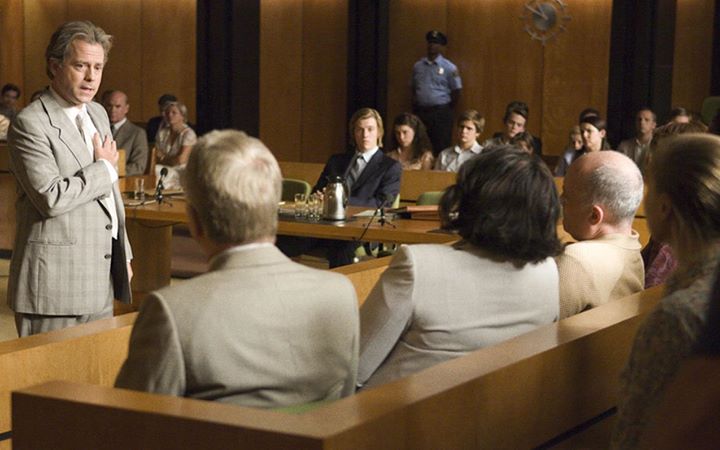歐洲專利局及英國智慧局拒絕人工智慧作為專利發明人
歐洲專利局於2019年11月25日舉行了非公開聽證會之後,拒絕了以名為DABUS的人工智慧作為發明人的兩個歐洲專利申請案。
這兩個專利申請案分別是「食物容器」(Food container,公開號EP3564144)以及「吸引增益注意力的裝置與方法」(Devices and methods for attracting enhanced attention,公開號EP3563896)。這些申請是透過人造發明人計劃(the Artificial Inventor Project)進行申請的,該計劃至今已透過專利合作條約在美國、英國、德國、以色列、中國、韓國以及台灣提出專利申請案。
DABUS是由Stephen Thaler博士所研發的,而DABUS這個名字則是以專利文件上的申請人所命名(延伸閱讀:《Artificial Intelligence Inventor Asks If ‘WHO’ Can Be an Inventor Is the Wrong Question?》)。
發明人必須是自然人
歐洲專利局尚未發表拒絕申請案的理由,而僅聲明這些申請案並未滿足歐洲專利公約中的要求,即,於申請案中的發明人必須是自然人,不能是機器。這個拒絕理由涉及歐洲專利公約第81條及細則第19條。
歐洲專利公約第81條規定:歐洲專利申請案應指定發明人。若申請人不是發明人或不是唯一發明人,則該指定應包括歐洲專利權來源的聲明。細則第19條則涉及發明人的指定。兩者均未具體指出非人類可作為發明人的可能性。
人造發明人專案的Ryan Abbott教授告知IPWatchdog,他還沒看到歐洲專利局對此決定之理由,該理由預計於本月底前發布,但他預計會就該結果提出訴願。
英國智慧財產局鼓勵辯論
英國智慧財產局也拒絕接受DABUS的申請案,並表示這些申請案將在16個月期限屆滿時視為撤回,英國智慧財產局已發布了決定並載明拒絕理由。
決定中,英國智慧財產局官員Huw Jones表示,英國智慧財產局接受在專利申請案中DABUS創造了這些發明,但是由於DABUS是機器而非自然人,因此無法作為發明人。此外,由於DABUS對於發明沒有權利,因此不清楚申請人如何從DABUS取得發明的權利。該官員還認為:「在此案例中,因為發明人本身無法持有財產,似乎沒有法律允許可以將發明的所有權自發明人身上移轉到所有人身上」。
然而,官員也補充表示,這個案例提出了一個重要問題:有鑑於人工智慧機器無法擁有財產權,那麼可以用何種方式來鼓勵人工智慧的研發創新?
官員表示,如同申請人所說,由人工智慧機器創造的發明在未來可能會變得愈來愈普遍,因而存在一個問題:專利制度應如何或是否應處理此類發明。對此,我發現當前的系統無法滿足此類發明的需求,並且當前的系統也從未預見要滿足此類發明的需求。然而,由於時代已經改變,而技術也在不斷發展,應該對這樣的議題進行更廣泛的辯論才是正確的,並且對法律的任何修改都應在這樣的辯論中加以考慮,而不是隨意地將其納入現有的法律中。
英國智慧財產局程序手冊係於2019年10月更新,表示不接受人工智慧作為發明人。然而,官員說這與本案的決定無關。
預期未來會有更多的爭議
Abbott教授告訴IP Watchdog,其實對這樣的決定並不感到驚訝,因為「這是一個非常新穎的法律問題,且正待各國的專利局去面對!」,他補充說:「我們預期會需要司法或其他多方利害關係人來一同參與與討論。」
他表示,推動人造發明人計劃的原則是,申請人應該被真理引導(也就是說,如果發明是由機器所製造的,那麼就不應說謊),並且為人工智慧生成的成果提供專利保護將會鼓勵創新。他在WIPO雜誌上發表的一篇文章中闡述了這些論點。
Abbott教授補充說明,該計劃並未主張人工智慧可以是專利的所有人。人工智慧系統不能擁有財產,並且也沒有理由修改法律允許這樣做。他說,專利系統中的鼓勵創新機制是由人工智慧作為發明人,而人工智慧的所有人作為專利的所有人。
該計劃打算在今年與更多當地代理人合作,並於更多國家提出專利申請案。
本文經作者授權編譯,原文發布於 IPWatchdog.com
翻譯/李春霖 專利師,廣流智權事務所
編輯/馬克斯 專利師
Image by Jonny Lindner from Pixabay
原文如下:
The European Patent Office has refused two European patent applications that designated an artificial intelligence called DABUS as the inventor, following a non-public hearing on November 25, 2019.
The applications are for a “food container” (number EP3564144) and “devices and methods for attracting enhanced attention” (number EP3563896). They were filed by the Artificial Inventor Project, which has so far filed patent applications for the inventions via the Patent Cooperation Treaty (PCT) in the United States, United Kingdom, Germany, Israel, China, Korea and Taiwan.
DABUS was developed by Dr. Stephen Thaler, who is named as the applicant on the patent documents. (See “Artificial Intelligence Inventor Asks If ‘WHO’ Can Be an Inventor Is the Wrong Question?”, IPWatchdog, August 5, 2019.)
Inventor Has to Be Human Being
The EPO has not yet published its reasons for refusing the applications but merely stated that “they do not meet the requirement of the European Patent Convention (EPC) that an inventor designated in the application has to be a human being, not a machine.” The refusal refers to Article 81 and Rule 19 of the EPC.
Article 81 of the EPC states: “The European patent application shall designate the inventor. If the applicant is not the inventor or is not the sole inventor, the designation shall contain a statement indicating the origin of the right to the European patent.” Rule 19 concerns the designation of the inventor. Neither specifically addresses the possibility of a non-human inventor.
Professor Ryan Abbott of the Artificial Inventor Project told IPWatchdog that an appeal would be filed. He said he had not yet seen the EPO’s reasoning for the decision, which is expected to be published later this month.
UKIPO Encourages Debate
The UKIPO has also refused to accept the DABUS applications, saying they shall be taken to be withdrawn at the expiry of the 16-month period. The Office has published a decision setting out its reasons.
In the decision, the Hearing Officer, Huw Jones, said the Office accepted that DABUS created the inventions in the patent applications but that as it was a machine and not a natural person, it could not be regarded as an inventor. Moreover, as DABUS has no rights to the inventions, it is unclear how the applicant derived the rights to the inventions from DABUS: “There appears to be no law that allows for the transfer of ownership of the invention from the inventor to the owner in this case, as the inventor itself cannot hold property.”
However, the Hearing Officer added that the case raised an important question: given that an AI machine cannot hold property rights, in what way can it be encouraged to disseminate information about an invention? He said:
As the applicant says, inventions created by AI machines are likely to become more prevalent in future and there is a legitimate question as to how or whether the patent system should handle such inventions. I have found that the present system does not cater for such inventions and it was never anticipated that it would, but times have changed and technology has moved on. It is right that this is debated more widely and that any changes to the law be considered in the context of such a debate, and not shoehorned arbitrarily into existing legislation.
The UKIPO Formalities Manual was updated in October last year to say that an AI inventor is not acceptable. However, the Hearing Officer said this had no bearing on the decision in this case.
Further Debate Expected
Professor Abbott told IPWatchdog the decisions were not surprising, as “this is a highly novel issue of law for patent offices to deal with.” He added: “We expected that judicial or other multi-stakeholder involvement would be required.”
He said the principles driving the Artificial Inventor Project are that applicants should be guided by truth (i.e., if an invention has been made by a machine then they should not lie about it) and that making patent protection available for AI-generated works will incentivize innovation. He has set these arguments out in an article published in the WIPO Magazine.
The Project does not argue that AI can be the owner of a patent, added Professor Abbott. AI systems cannot own property, and there is no reason to change the law to allow this. “The incentives in the patent system work with the AI as an inventor, and the AI’s owner as the owner of the patent,” he said.
The Project is planning to work with local attorneys to file the applications in more jurisdictions this year.



